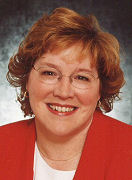 Photo: Getty Images
Photo: Getty Images
You’ve seen your doctor, you’ve suffered through the tests, you may have been referred to a specialist. Now it’s time for the verdict – your diagnosis.
"You have XYZ," the doctor tells you. "And this is how we usually treat it."
That seems like the perfect world – a concise answer, and well-defined next steps. But sometimes a diagnosis isn’t so clear. It’s even possible that it isn’t correct. So before you get into discussing treatment options with your doctor, there are five words that might make a huge difference in how well you weather your health storm.
You need to ask your doctor, "What else might it be?"
Asking what the other possibilities are does not assume your doctor’s diagnosis is wrong. It's a recognition that we must trust, but verify. And in your doctor's world, it's a request to participate in a decision-making process your doctor uses every day called "differential diagnosis."
Differential diagnosis is the detective side of determining your diagnosis. It uses evidence and the process of elimination to hone in on the closest answer. Your doctor compares the results of your symptoms, your tests, your family history, plus her own experience and observations, to a list of possible diagnoses which are all related in some way, but have differences among them. That review should help her eliminate all but one or two answers, resulting in the diagnosis she gives you.
By asking "What else can it be?" you are asking your doctor to provide you with her differential diagnosis, by sharing her list of the other possibilities. Her answers will give you clues as to why that particular diagnosis was determined for you. It’s also a confirmation step. It’s always possible that symptoms were recorded incorrectly, or that test results got filed incorrectly. As you review the evidence, you can verify that it is yours, and is accurate. If you find errors this early in the process, it allows you to correct the course early, before you waste time with wrong, or unnecessary treatment.
Even after you’ve begun treatment, you may decide it’s not helping you. Your doctor’s original diagnosis may have been flawed. At that point you can study more about the other diagnoses on the list to determine whether one of them is a closer answer. Armed with this extra understanding, you’ll be able to discuss the alternatives intelligently when you return to your doctor, or when you seek a second opinion.
Empowered patients know that asking "what else might it be?" can make a huge difference in treatment success, and eventual outcomes.
Edited by Alison Stanton





Add a CommentComments
There are no comments yet. Be the first one and get the conversation started!